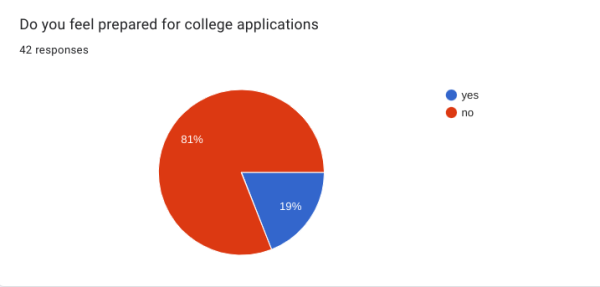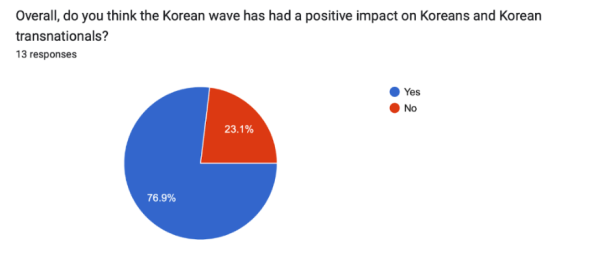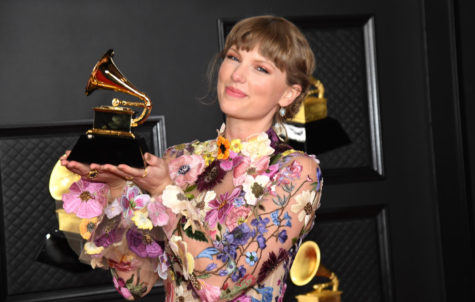How TikTok Saved a Generation
Whether it is a funny video of a dog, a quesadilla recipe, or a dancing trend, TikTok has become the social media hotspot of the decade. With over 41% of its users belonging to the age group of 16 to 24, it is no surprise that the app has attracted speculation on its negative impact on teenagers. While it is impossible to ignore the app’s inevitable downsides, it is also impossible to neglect the positive effects it has had on a generation that grew up on social media.
According to Pew Research Center, members of Generation Z, born after 1996, are proved to be “digital natives,” meaning they do not remember a world without technology and smartphones. Growing up with social media’s constant exposure has had apparent psychological effects on this generation while also increasing the deceitful fascination with the unrealistic. So, how is TikTok any different than all the other deceptive social media platforms?
Realistic vs Idealistic
TikTok has revolutionized the misleading atmosphere that usually surrounds social media. While other platforms, such as Instagram, fill up users’ feeds with images of perfectionism, TikTok creates an open space for creators to be themselves. Studies show that 83% of TikTok users have posted a video, meaning that most of the app’s creators are not necessarily what we categorize as “influencers.” According to its designers, the app’s algorithm promotes engaging, original content, allowing any small user to go viral. So, instead of getting likes for posting a perfect picture, users focus on coming up with creative, honest ways to entertain and attract other users.
The reachability users get from TikTok has restored authenticity in trendsetting. It is no longer about posting about what people could be, but about what people actually are. While other social media platforms highlight what is wrong with users and what they should fantasize about being, TikTok videos emphasize the idea of perfection within the imperfect.
An example being the trend of body positivity spread mostly by female creators through this platform. In recent years, studies have proven that the rising levels of depression in teenage girls result from the “browsing, posting, and liking” culture surrounding platforms like Instagram or Facebook. However, on this app, many female users have used the liberty TikTok provides to promote and spread a positive message about body image and confidence. By sharing real-life stories, supportive comments, and realistic representations, TikTok users can access other users’ genuine support, creating a community of kids encouraging kids.
Moreover, TikTok trends have had the effect of inciting initiative in young people. The basic concept of social media is to see an ideal and recreate it; but, instead of being an unattainable ideal, TikTok videos emphasize everyday life’s potential. After analyzing some of the current popular trends, I found that the majority are based on doing simple things to adorn daily life monotony, such as journaling an experience or trying out a new craft, or even something as simple as trying to watch the sunset every day. These trends have promoted the importance of making life fun and seeking more meaning from the mundane experiences we all go through. Gen Z has the initiative to experience the trends they see on TikTok, which has saved this generation from the death sentence the internet had imposed on them.
A Gen Z Point of View
With the development of the internet, not many foresaw its effects on the younger generations. Most of Gen Z grew up “indoors,” while previous generations spent most of their time playing outside. Technology provided a place where children could live life and experience things through a screen, leading to the loss of initiative to explore and play. While TikTok has become another means of entertainment supplied by the internet, it is clear that some of its teen users are viewing it as an opportunity to live out experiences and share them with others for them to do. The issue of Gen Z’s sedentary lifestyles brought on by technology is not going to disappear unless all of the internet disappears, something entirely improbable. So maybe, instead of focusing on limiting this generation’s use of technology, other social networks should start focusing on ways to use online platforms to encourage activity, the way the TikTok community does.
Gen Z grew up in a world where information is available within seconds, but at the same time, they grew up in a world where it is effortless to get caught up in the unrealistic expectations it praises. The accessibility they have to social platforms constantly reminds them of how they are not the social ideal or how insignificant their lives seem compared to the online fantasy world. TikTok has broken these stereotypes by creating a space for the reality that life is. Young people can go into this app and find support, creativity, and inspiration coming from creators who look and live like them.
To older generations, the app may seem like another virtual distraction from the tangibility of real life, but the truth is that the times have changed. In the circumstances this generation has known, TikTok has redefined virtual standards and restored the idea of the online community.









